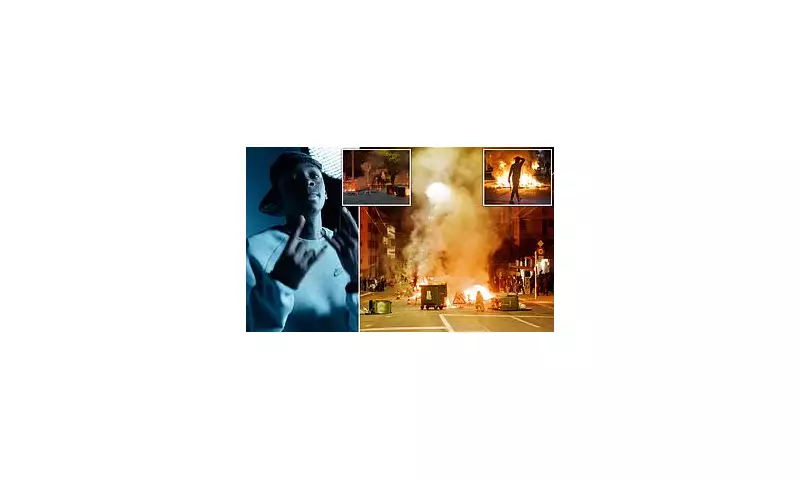
For decades, Switzerland has cultivated an image as Europe's quiet, neutral neighbour—a bastion of peace and stability. That carefully constructed facade has now been violently shattered in the streets of Lausanne.
A Fateful Chase and a Nation's Turning Point
The tragic death of a 15-year-old migrant boy during a police pursuit over an e-scooter violation has ignited unprecedented civil unrest, transforming the picturesque city into a battleground of Molotov cocktails and rubber bullets.
What began as a routine traffic stop has exploded into Switzerland's worst political violence in years, exposing deep fractures in Swiss society and challenging the nation's cherished self-image.
Nights of Violence Rock Peaceful City
Lausanne, typically known for its Olympic Museum and serene Lake Geneva views, has endured consecutive nights of chaos. Rioters have torched vehicles, hurled projectiles at officers, and clashed violently with police in full riot gear.
The violence has been so intense that authorities have deployed rubber bullets and tear gas to disperse crowds of hundreds of youths, many from immigrant backgrounds, who have taken to the streets in furious protest.
The Incident That Sparked the Flames
According to police reports, the tragedy unfolded when officers attempted to stop the teenager for riding an e-scooter without proper lights. Rather than stopping, the youth fled, leading to a brief chase that ended catastrophically when he collided with a vehicle at a busy intersection.
Despite immediate medical attention, the teenager succumbed to his injuries, becoming a symbol of alleged police brutality and systemic discrimination against migrant communities.
A Community's Anger Boils Over
The response from Lausanne's immigrant communities has been swift and furious. Protesters accuse police of racial profiling and employing disproportionate force against minority youths.
"They're always harassing us for nothing," one young demonstrator told local media, capturing the sentiment of many who feel targeted by authorities.
Official Response and Mounting Tensions
Police officials have expressed regret for the death but maintain they followed standard procedures. An investigation has been launched into the incident, though this has done little to calm community anger.
The Swiss government finds itself in unfamiliar territory, facing questions about integration policies and police conduct that it has largely avoided until now.
Broader Implications for Swiss Society
This crisis strikes at the heart of Switzerland's identity as an orderly, harmonious society. The violence reveals underlying tensions about immigration and integration that have simmered beneath the surface for years.
As one political analyst noted, "Switzerland can no longer pretend these problems don't exist. The myth of perfect neutrality and social peace has been broken."
The unrest in Lausanne serves as a stark warning that even Europe's most stable nations are not immune to the social fractures affecting the continent. How Switzerland responds may define its future as either a model of integration or another European nation struggling with diversity and discrimination.





